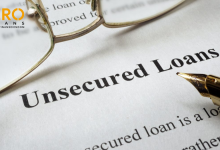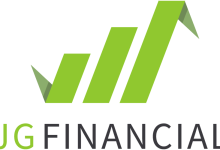
It is not your income which decides how to pay off debt, What is required is work. It needs planning when seeking to be a debt-free person which is a hard task, but it’s not impossible. By getting debt advice in the UK and managing your finances following certain rules, one can easily pay off debt.
Rule 1: Start an Emergency Fund
It may sound very orthodox that the first rule to pay off debt is by saving. A lot of people start their debt with an unexpected payment which is across your daily routine. By paying a surprise bill with a credit card instead of using cash, it starts a cycle of debt that is difficult to manage.
To start with your emergency fund:
- Bifurcate deposit: Some saving schemes allow channeling your deposit in two different accounts. Make this your emergency fund.
- Using automated process for transferring funds
- Choose a bank with a high interest savings account: This account will generate a high rate of interest on money than other types of accounts. They usually come with zero balance requirements.
Rule 2: Know How Much Debt You owe
Have your credit report and credit scores, as well as the most recent credit card and loan receipts. Cross check the credit report to verify all the recorded debts are correct. The credit score will help to analyze whether you qualify for lower interest rates or a debt consolidation loan or not.
Rule 3: Set Up a Budget
When you are in the mood for a debt free life and want to pay off debt as soon as possible you must monitor your expenditure and savings. It helps to govern the expenditure patterns and manage money to pay off debt.
Rule 4: Monitor the expenditure
Keeping a record of the expenditures on a spreadsheet or by noting down your expenses will help in paying off the debt. Create separate columns for housing, food, transportation, health, personal and family, finance, and other. Do this monthly or weekly basis.
At the end of the week/month, analyze your expenditure. If the result is positive at the end of the week/month, use the money saved during the process to pay off debt
Rule 5: Narrow down Spending
Look at your expenses, and try to find where you can cut short and use that amount to pay off debt. For example:
- Reduce daily, non-essential purchases. Reducing the lunches at good restaurants and having parties every weekend can save a lot of money to pay off debt.
- Change the shopping style and stores. Try visiting different grocery stores to see which particular store is offering the best price for you to lower your expenses.
- Avoid subscribing to plan such as Netflix. Many times you set up automated bill pay for these subscriptions and end up wasting money as you are not watching the shows on it anyway. This can save a lot of money if you think precisely.
- If you have a spare room, add a roommate or host a short-term rental, this will generate an alternate income source for generating money
- Try to lower your entertainment expenses by organizing out of the box ideas of having a theme dinner at home rather than going to a fancy restaurant and going to libraries to rent movies rather than going to the theater.
Now calculate the excess expenditure, reorganize the budget.
Rule 6: Pay Your Smallest Debts
It is always a fruitful suggestion to clear the smallest debts first. Although the approach might not reduce the amount you pay in interest, shredding a chunk from a low income and also paying off the debts motivates you for future hurdles.
Rule 7: Pay Your Highest Interest Debts
The above mentioned method is a good approach for starters but in the long run you will require a stronger blow to ease off your debt while dealing with high interest debts.
It might give you an impression that no or very little progress is happening, which is not very motivating at times. But stay focused on the goal and eventually it will be realized that in overcoming the hurdles of debt and making progress is doing wonders in debt help.
Rule 8: Seek out Debt Advice UK or Consolidation Options
When going for a debt consolidation option, it is just the formation of a single debt rather than paying off debts individually.
- Credit card with balance transfer: The main requirement is to have an excellent credit to bag a low interest rate.
- Take a personal loan: Having a better credit will always make way for a lender that will give you money for a lower APR.
- Student loan consolidation: It helps the student to group multiple loans into one with a fixed and non-fluctuating interest rate.
- Debt Management Plan: It is a very common part of Debt Advice in the UK which includes going to a credit counseling agency. A DMP can offer or extend payoff timelines, and can cut interest rates in half.
Rule 9: Choose to Refinance
Another suitable way to pay off debt with step change UK if on a budget is by exploring the option of refinancing. When opting for refinance, there is external help to pay off debt. A new loan is being offered at a lower interest rate.
related topic : WordPress
Rule 10: Raise the income bar
Developing a new source of earnings isn’t a child’s play, but it is not impossible either. Look for art time jobs or overtime at work, or by simply starting a small side business which does not require much time and can be easily carried out after normal working hours of office.
Selling items that are no longer in use to you or gifts which are not currently in use and are packed and not even opened once.
Rule 11: Stay focused
One thing to always keep in mind when paying off debt, even on a budget, is staying motivated. Consider the process as a marathon rather than a race.
- Set goals and avoid new debt
- Treat yourself with an allowance
- Cherish debt payoff goals when achieve



